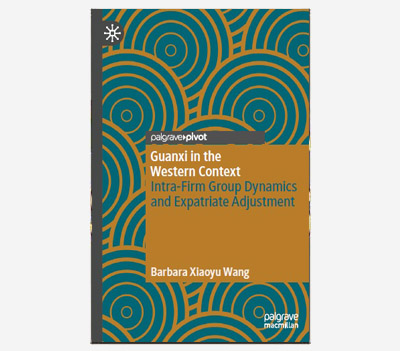
The concept of guanxi: top takeaways
China’s rapidly growing economy has gathered much interest about the practices and philosophies that support Chinese business. This intrigue is mainly derived from the West. The nature of globalisation for Chinese multinational companies (MNCs) has also significantly affected European economies and societies. In light of this, this piece intends to explore the Chinese concept of guanxi and how this can aid better business relations.
The concept of guanxi
Guanxi, distinctive to the Chinese culture, is a form of social interaction that enables a forging of connections, making contacts and forming warm relationships in business. This phenomenon is unique as it allows for a relationship with a mutual benefit as networking favours both individuals, even though the person initially carrying out guanxi is doing so to achieve a personal goal.
As such, the concept has been critiqued for encouraging corruption as it inhibits a notion of profit-seeking. Despite this disadvantageous aspect to guanxi, Chinese businesspeople adhere to a more humane management style that guanxi provides. Whilst many Chinese firms have adopted a Western approach to management, the fundamental rules of ownership, control and decision-making remains central to most Chinese business practices.
Even in today’s globalised world, guanxi is pivotal for Chinese managers who still exercise such values and behaviours. Therefore, along with China’s economic rise, guanxi continues to play an important role in business relations.
How does Western business practice differentiate from Chinese guanxi?
The main difference between these practices is that Western business is largely based on the rules, not the person and relationship with that individual. As such, the West tend to establish a ‘business first’ relationship, whereas the Chinese culture enforces guanxi prior to any professional engagement.
Another key difference comes down to the style of business ownership. European businesses are either public or private, whereas Chinese-run businesses tend to be either state-owned enterprises (SOE – led by the government, with the CEO serving as its official) or private companies (which are usually family-run, highly centralised and have an autocratic ownership style). For an SOE type of business, social stability and harmony remain vital, as such, guanxi is quintessential for this to be carried out effectively. Opposing this, private Chinese companies emphasise structure, process and culture which is similar to a Western style.

Deeply rooted in Chinese culture, the concept of guanxi has been widely researched from historical, cultural and political perspectives. As Chinese multinational corporations (MNCs) expand, expatriates are increasingly carrying guanxi with them to host countries, yet little has been written on how this indigenous construct is employed in the Western world. This book takes a theoretical approach to the examination of this phenomenon and proposes a conceptual framework for the ‘guanxi capitalism structure,’ illustrating its fundamental role as the invisible hand in China. Providing empirical analysis, the author demonstrates how guanxi affects intra-firm multicultural group dynamics involving Chinese expatriates and host-country natives in Chinese MNCs. With insights for scholars researching Asian business and globalisation, and practitioners working in Chinese MNCs, this book argues that guanxi significantly alters an expatriate’s adjustment, and offers practical suggestions for cross-cultural management and the process of initiating, building, and utilising guanxi in a Western context.
Should business leaders from China and Europe adopt a cross-cultural approach to management?
Yes, Chinese and European leaders should co-operate and effectively communicate with each other. Consequently, this should reduce misinterpretation and misunderstanding amongst both cultures.
Cross-cultural guanxi practising can be achieved in multiple ways, such as: sharing important information with the team first, then conducting a private conversation with each team member; using common language in the workplace, especially in meetings; interact as a coach to show you’re open-minded and non-judgemental in situations; taking the team out for a retreat or team building activities; celebrating success openly whilst also giving private recognition and finally, treating everyone equally in the workplace.
How can European firms ensure they develop good guanxi?
Businesses can ensure they are undertaking guanxi effectively by fostering a win-win in situations, which result in a mutual benefit. With this, good guanxi practice can also be maintained through strong relationships amongst individuals – not organisations.
Guanxi should also be implemented as a major business strategy within itself, not just a temporary act to boost the business’ economic wellbeing. If executed into a business strategy, it must be noted that the process of building guanxi is time-consuming and on-going, thus, relationships must always be maintained.
Finally, to prevent the negative outcomes of guanxi, businesses should establish effective corporate governance, codes of conduct and internal background checks of employees and balances to maintain guanxi as a successful yet moral practice.

